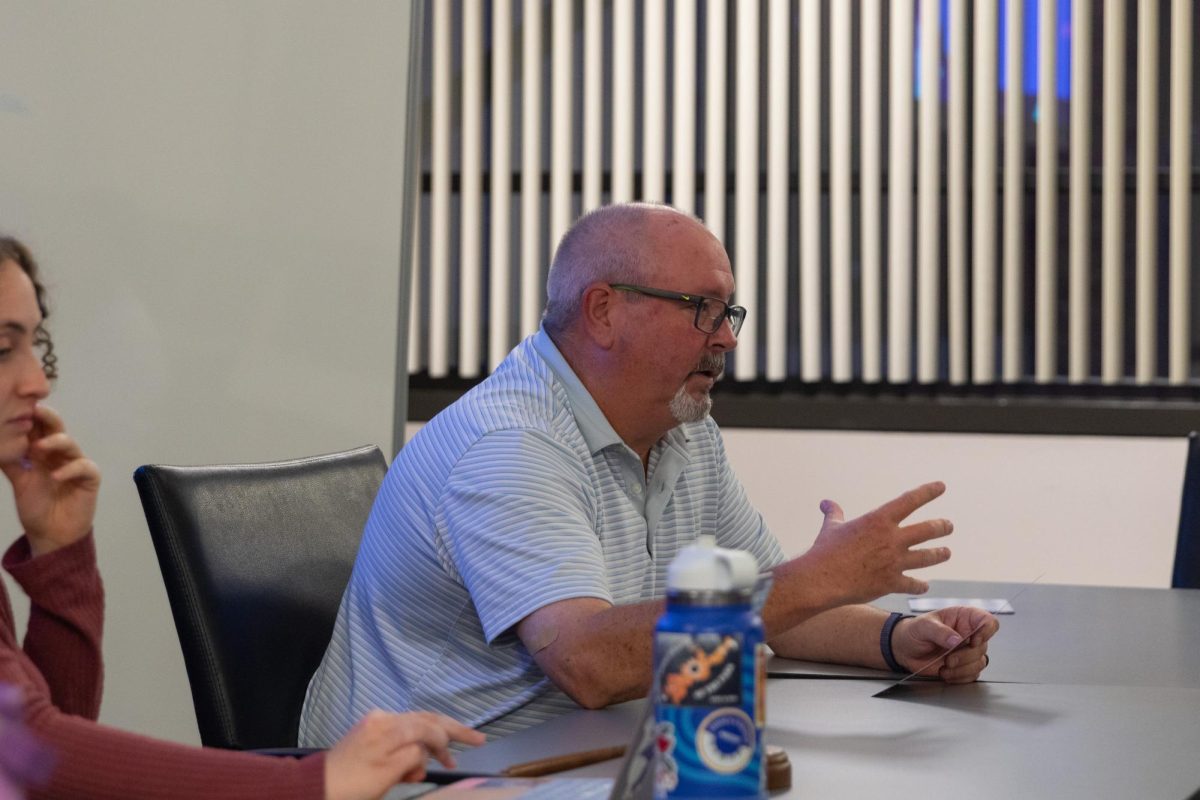The Ithaca College Faculty Council discussed the possible implementation of an updated Intellectual Property Policy at its monthly meeting on Oct. 1 in the Athletics and Events Center VIP Room.
Traevena Byrd, associate counsel and director of equal opportunity compliance, presented the proposed policy to the council. Byrd said the college created the committee of faculty and staff members from various departments to help address the confusion about the creation of intellectual property with student involvement.
“We had lots of interesting scenarios that were coming up, with circumstances involving the ownership rights when students were involved,” Byrd said. “We had things in the Park School where students were creating documentary films with campus resources, and they were getting a lot of attention internationally, so questions were raised about who owns what.”
The biggest changes involved copyrights of work produced either by students or with student involvement. Under the proposed policy, a faculty member will share royalties on copyrighted work if he or she received unpaid assistance from students outside of class. This includes research done outside of regular coursework.
The proposed policy will also grant copyrights for work produced for class assignments to students. This varies from the current policy, which grants copyrights of student coursework to the college.
Jason Harrington, assistant professor of media arts, sciences and studies, disagreed with this change. Harrington said he thinks that if the school helps a student produce copyrighted material, then the school should receive some credit.
“If students create a film for my assignment, and the parameters are something I’ve structured … in some ways the concept of that film is partially mine,” Harrington said. “Most institutions simply say you need to acknowledge that this school was somehow a part of your project.”
Another major concern while discussing intellectual property was syllabus ownership. While syllabus ownership is not discussed in the current policy, under the proposed policy, all materials submitted when proposing a course will become the property of the college. For many faculty members this includes the course syllabus.
Don Tindall, associate professor of theater arts, said he creates his courses without help from the college, so they should be his own property, not belonging to the college.
“There seems to be an assumption in this that the college has an equal role in the content of all courses,” Tindall said. “As far as I’m concerned, for most of my courses, the most I’ve gotten from [the college] is which number should it be.”
Marisa Kelly, provost and vice president of academic affairs, said this amendment is meant to prevent faculty members from selling their courses to other institutions. Kelly said the policy, which will be further discussed at the council’s next meeting in November, was proposed as a means of protecting the college’s curriculum.
“There are really only a couple of things that the college could not exist without in terms of our ability to survive in a competitive market, and that would be our faculty and our curriculum,” Kelly said. “It’s really not about what you can take with you when you go somewhere else, it’s about what does Ithaca College have a stake in besides its human resources.”







